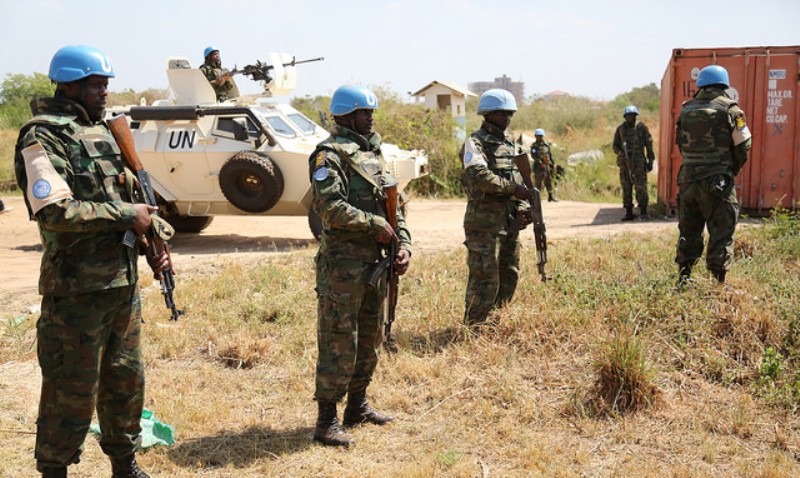IGAD military leaders decide to deploy over 1600 troops in South Sudan

November 22, 2018 (KHARTUM/JUBA) – The IGAD chiefs of staff decided to dispatch over 1600 troops from five countries to take part in the Regional Protection Force (RPF) deployed in South Sudan.
As guarantors of the revitalized peace agreement, the Extra-Ordinary Summit of the IGAD Assembly of Heads of State and Government held, in Addis Ababa, on 12 September 2018 decided to “contribute forces to enhance the protection and security throughout the implementation of the R-ARCSS.
Accordingly, after a meeting in Khartoum the IGAD chiefs of staff sent a team to Juba to assess the operational needs. The report of the assessment mission was discussed by the military leader in a meeting held in Addis Ababa from 19-22 November.
“Based on the conclusions of the report, which reviewed the composition and mandate of the regional protection forces, it was agreed today in Addis Ababa to add (1695) troops to complete the tasks by assigning (Uganda, Kenya, Sudan, Djibouti and Somalia),” said the official Sudan news agency (SUNA).
“The contributions to be as follows, four hundred ninety-nine (499) each from Kenya, Uganda, and Sudan, and ninety-nine (99) each from Somalia and Djibouti.”
The deployment of IGAD forces was decided to reassure the opposition groups that the guarantors will be physically present on the ground to prevent the repetition of attacks on civilians as it happened in July 2016 or in December 2013.
The opposition groups and especially the SPLM-IO called to maintain the two separate armies during the transitional period and rejected the idea of a unified army pointing that the UN peacekeepers failed twice to stop the violence on civilians or to protect the opposition leaders.
From the inclusion of Kenya in the operation, it seems that Nairobi has accepted to resume its participation in the South Sudan peacekeeping force. The Kenyan government in November 2016 decided to withdraw troops from the United Nations Mission in South Sudan (UNMISS) in protest of a UN decision to sack the Kenyan force commander.
The IGAD military leaders tasked the Ethiopian army Chief of Staff to hand over the outcome of their meeting the Ethiopian foreign minister to engage the African Union Peace and Security Council and United Nations Security Council to enable the five countries to join the Regional Protection Force (RPF) deployed in South Sudan.
They further said that it is up to the Department of Peacekeeping Operations of the United Nations to determine the nature and type of forces in coordination with the five States involved in the operation.
In a briefing to the UN Security Council last Friday 16 November, the head of UN peacekeeping department Jean-Pierre Lacroix set three benchmarks for IGAD forces to integrated into the UNMISS.
“The following principles would need to be applied: a continuing priority of protection of civilians in UNMISS’ mandated tasks; the need to preserve a single peacekeeping force with one unified command and control structure; and, that any addition to the force would have to be carried out consistent with the principles of peacekeeping and the standards to which we hold all troop and police-contributing countries,” he stressed.
In a press conference held in Juba on Thursday 22 November, UNMISS head David Shearer recalled the need to have a single force with one unified command and control structure and the priority of protection of civilians
“We hope that they will keep in mind the capabilities and capacities of the total UNMISS force of 14,500 that is present across South Sudan which contributes to building a durable peace,” he said.
In response to a question about the regional force, Shearer said there is a sizeable number of peacekeepers deployed in the country and if there is a need for more troops this additional force would be under the command of UNMISS chief.
“But, as I say, we’ve got a large number of troops here already and what we would like to do is to make sure that they are used efficiently in the work of building a durable peace,” he stressed.
(ST)
